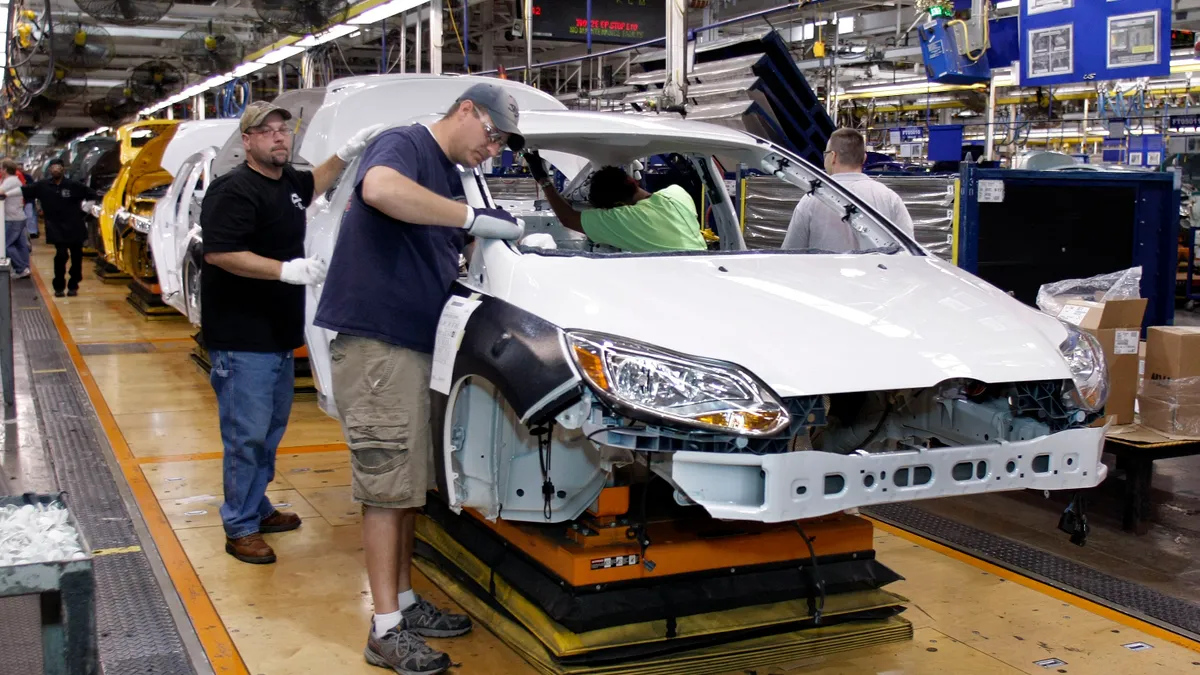Dive Brief:
-
A global energy transition will take place with or without the support of U.S. leaders, experts testified before Congress at a Tuesday hearing on clean energy supply chains. Whether or not the U.S. adapts, they said, will determine the degree to which the U.S. will rely on other nations for its energy needs in the years to come.
-
Lucian Pugliaresi, president of the Energy Policy Research Foundation, urged the development of new mineral resources to meet growing demand for electric vehicle batteries, clean energy and storage without abandoning fossil fuels too soon. While these minerals will be needed to maintain the U.S.’s status as a leading energy producer amid an inevitable energy change, he said, fossil fuels will remain important longer than some expect.
-
Democrats focused questions around recycling and the need to minimize the environmental and social impacts of mining minerals and metals needed to deploy clean energy technologies. Republicans argued Democratic policies had caused what they described as the current energy crisis, and would continue to drive inflation and impede progress in the future.
Dive Insight:
Two-fifths of global power now comes from zero carbon sources, and consumers are on track to purchase 5 million EVs this year, up from a half million in 2015, Ethan Zindler, head of Americas for BloombergNEF, testified before the House Energy and Commerce Committee's energy, and environment and climate change subcommittees on Tuesday. As demand for renewable energy and electric transportation grows, he said, the need for related materials such as steel, glass and copper, and rare minerals such as lithium and cobalt, will increase dramatically, presenting enormous financial opportunities for those industries.
But while the U.S. is one of only six countries that can produce all components of an onshore wind turbine domestically, Zindler said, the U.S. is "essentially a nonplayer" in solar supply chains.
"I am an industry analyst, not a policymaker," he said. "I can just tell you if the U.S. is going to install 30 GW of solar capacity this year, 80-90% will be imported materials. Is that something you want, or something you would like to adjust?"
While Zindler and other experts warned that U.S. supply chains are not prepared for an influx of demand for renewable energy and electric vehicles, Republicans spent most of Tuesday's hearing saying that the federal government should spend less time on clean energy and more time on the current crisis of rising gasoline and home heating costs.
"We should question what the rush to green means for pricing and reliable supply," said Rep. Cathy Rodgers, R-Wash. She argued Democrats had adopted a "radical energy agenda" that sought to replace U.S. production of fossil fuels with the production of minerals like lithium, jeopardizing the nation's ability to produce energy reliably and increasing the nation’s dependence on "slave labor in China."
This policy, she and other Republicans argued, would accelerate current inflationary trends and reduce the quality of life in the U.S.
"We may sound like a broken record over here, but that’s only because the majority continues to ignore the reality that there is an energy crisis raging in our country this year," Rep. Tim Walberg, R-Mich., said. "How about we focus on the supply chain crisis of the current energy economy?"
Pugliaresi rebuffed the idea that current increases in energy costs were tied to Biden Administration policies, blaming them instead on disruptions caused by COVID-19. But the administration could create future disruptions, he said, if it phases out fossil fuels too soon. A clean energy transition is inevitable, but U.S. supplies of lithium and other critical minerals needed to meet the growing demand for renewables and energy storage will not be sufficient to completely replace fossil fuels by 2035, he said.
Pugliaresi also testified that he did not believe it would be possible to open a sufficient number of new mines by 2035 to produce adequate mineral supplies domestically, because he said obtaining the necessary environmental permits would take too long.
While political uncertainties in the U.S. push mineral and solar component production jobs to more stable markets overseas, American workers are increasingly skeptical that the earnings and jobs associated with the clean energy transition will benefit their communities, Roxanne Brown, international vice president at large for the United Steelworkers, told the subcommittees.
As the hearing concluded, Rep. Tom O’Halleran, D-Ariz. said the question of how to reduce gasoline and heating costs this winter is an "interesting discussion. But if we’re going to move forward, we need to move away from these discussions to something that is more focused on the future.... The best way to cut carbon emissions is to encourage clean energy, invest in the future, and recognize the many lessons in history, that protection is not the course to the future."














